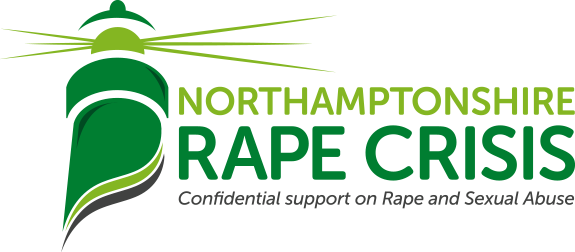NRC is an independent charity, you do not have to have reported to the police or any other service to receive our information, advice or access our services and support.
We provide a range of services as well as specialist sexual violence counselling. We can also refer you to our Independent Sexual Violence Advisor (ISVA) team.
Advocacy – What is the ISVA service?
An ISVA provides practical & emotional support as well as acting as an advocate for those who have experienced rape, sexual assault or sexual abuse. ISVA’s are specially trained to help people who have been victims of sexual violence at any time recently or even if the assault or abuse took place many years ago. Our ISVA team work with anyone aged 14 and over and are trained sexual violence specialists.
The ISVA service is non-directive and non-judgmental. You’ll receive information you need to make informed choices but an ISVA will not influence you to take any particular course of action. The ISVA will support you in any decisions you make.
By working with an ISVA and speaking about something that has happened to you (we call this an incident), you are not reporting to the Police and the ISVA won’t tell you what to do. ISVAs are completely independent and not part of the legal system, they provide you with the information you need to make decisions that are right for you. This includes explaining how the criminal justice process works.
Making contact with NRC for our ISVA Service
When you first contact NRC you will be put in touch with our Client Assessor. She’ll provide unbiased information about all your available choices and refer you on to our ISVA service if appropriate.
An ISVA, depending on what you want to do, can explain how to go about reporting to the police (should you wish) as well as ensure you have access to specialist support such as pre-trial therapy or specialist sexual violence counselling, as well as other support available through NRC.
An ISVA will help you to get the support you need to decide what to do, this can be across a range of areas and may include:
- Emotional non-therapeutic support
- Support to access healthcare
- Support in accessing appropriate counselling
- Signpost and/or attend with you any other support you may need, such as with housing, college/University, job centre etc.
- Provide information about the court process, so that you can make an informed decision about whether or not to report to the police
- Advocate for you with the police and other agencies, if needed
- Support you in making a report to the police
- Liaise with the police on your behalf for regular updates and keep you informed of developments
- Support you at all stages of the court reporting process
- Attend court with you
Reporting – If you do want to report to the Police
Immediately after an assault, there are several ways you can choose to report. If you want forensic evidence to be collected this is best done as soon as possible and within 72 hours of an incident.
- You can call the Police on 999.
- You can go to your local police station. To find your local station either call 101 or go to https://www.northants.police.uk/contact/find-a-police-station/
- Report Anonymously – this is called Third Party Reporting. Our ISVA can help with third party anonymous reporting if you do not feel ready to complete a full police report at this time. Our ISVA with your permission can pass information about your incident to the police without giving away any details which could identify you. This helps them to see if there are serial offenders. We will always ask your permission before we pass on any information.
ISVA Support through the Criminal Justice Process
If you do choose to report, our ISVA is there to support you throughout the criminal justice process and at court. She’ll be there through any challenging times to explain the criminal justice process and options available to you at every stage.
We would encourage you to talk with our ISVA service in the first instance. They will be able to answer any questions you have and explain the process involved in reporting, and should your case be taken forward explain the court processes.
Further Reading – From Report to Court
If you would like to read more about the criminal justice process Rape Crisis England and Wales provide a useful summary to walk you through the detailed guidance created by Rights of Women.
To read the summarised guidance go to https://rapecrisis.org.uk/get-help/looking-for-information/reporting-to-the-police/from-report-to-court/
To access a more detailed and the most recent version of From Report to Court: A handbook for Adult Survivors of Sexual Violence produced in 2018 go to https://rightsofwomen.org.uk/get-information/criminal-law/report-court-handbook-adult-survivors-sexual-violence/
Referrals to our ISVA service
We accept referrals from individuals who have been impacted by sexual violence or from others who have the survivor/victims permission to contact us as well as from other organisations. Here is a service leaflet for Professionals who wish to find out more about our ISVA Service and how it can help. Download link – The ISVA Service – Information Sheet for Professionals.
NRC maintains effective working relationships with a range of local partners, including statutory agencies and voluntary services to ensure that additional support services are available for our clients and that these services meet our client’s needs.
